Mathematics
Maths Video & Top Tips
Mathematics Intent
At Weeke Primary School, all of our children are mathematicians! Our intention is to provide the children with a high quality rich, progressive curriculum which enables them to become fluent in their mathematical thinking and recall, to reason about maths articulately and to confidently solve a range of mathematical problems.
Sequences, patterns, measures and ultimately the entire study of mathematics have evolved to help us make more sense of the world around us and we hope to instil a curiosity which enables our children to continue to do this in their lives. We aim for the children to develop a deep understanding of the core principles of maths and how they are connected, so that they can tackle new ideas, concepts and methods as they move into secondary school and beyond.
We want children to be inquisitive about the subject, to appreciate the power of maths, to enjoy learning maths, to become more resilient and to experience ‘wow’ moments in their learning through determination, perseverance and hard work.
Children are encouraged to view making mistakes as a fundamental part of the learning process. Our inclusive ‘everyone can learn to do maths’ approach ensures that all children are expected to be successful in their learning. Our curriculum involves active, practical, hands on experiences that encourage deep thinking and problem solving.
We work alongside local secondary schools and colleges to offer enrichment opportunities for children. We aim to give every child the core mathematical skills and knowledge needed and the confidence to use them; we want children to see maths as a subject to learn at school but most importantly as a life-long skill. We hope to inspire as many children as possible to develop a love and enthusiasm about the subject so that they continue learning maths beyond secondary school, recognise it’s value in life generally and enter one of the wide range of careers in science, medicine, technology and engineering that maths opens up for them.
Our pupils enjoying maths
Mathematics Implementation
How do we teach maths?
Our maths curriculum and daily maths lessons are based on the principles of maths mastery, which means that at the heart of our curriculum is the fundamental belief that all children can ‘learn maths’. We foster a positive mindset about maths.
At Weeke, children develop their knowledge and understanding of mathematical concepts through a series of interconnected lessons based on small steps of learning. A ‘whole class teaching’ model is used for the vast majority of children and is interactive, enabling teachers to teach, children to practise and teachers to assess throughout the lesson.
Teachers adapt the learning for individuals through support and challenge within lessons and in their planning, ensuring children are secure in their learning before moving on. Using this model, the vast majority children learn and move through the maths curriculum at broadly the same pace and are enabled to reach their potential. Some children with significant learning difficulties follow a curriculum which is designed to meet their specific needs, but this will also follow the same principles of mastery. Some children may need maths interventions; we aim for children to keep up rather than have to catch up later on. We achieve this through pre-teaching and small group support, including using an intervention programme called 'Numberstacks' which identifies and targets children's gaps in learning.
Mathematical vocabulary is an essential component to success in maths; this is taught through the use of stem sentences which help the children reason and explain their thinking, for example: ‘the whole is divided into four equal parts’ will help children understand and reason about quarters of both shapes and numbers. A deep understanding of mathematical concepts is an essential element of our curriculum. For example, children will not only learn their times tables facts, but they will learn the key principles of multiplicative reasoning, such as the fact that 3 x 4 = 4 x 3.
Our curriculum builds on prior learning and children are taught to use what they do know to find out what they don’t know, for example, using their deep understanding of multiplication, they can find out what 8 x 3 is because they already know 4 x 3. We believe that fluency is vital to children progressing through the curriculum and children practise their fluency skills daily across all year groups. In EYFS and KS1, fluency practise takes place in addition to the daily maths lesson, using a programme called 'Mastering Number' at KS1. In year 3, children continue to practise their fluency skills using a programme called Numbersense before focusing on multiplicative structures (multiplication and division) later in the year. Both Numbersense and 'Mastering Number' focus on securing a deep sense of number relationships and concepts, through developing knowledge of additive structures and facts (addition and subtraction). In years 4 and 5, children's fluency sessions are focused on multiplicative structures, using 'Mastering Number' at KS2. In year 6, children practise fluency skills across all areas of the maths curriculum, enabling them to prepare for KS3. All fluency sessions are in addition to the daily maths lesson.
All programmes used in the school are very well researched educational strategies founded by the NCETM (National Centre for Excellence in the Teaching of Mathematics). Links to programmes we use can be found below:
- https://www.ncetm.org.uk/maths-hubs-projects/mastering-number-at-reception-and-ks1/
- https://numbersensemaths.com/
In EYFS and Year 1 we use a wide range of concrete resources, pictures and images to help children understand key concepts and help them to tackle more abstract maths. We recognise the importance of taking a consistent whole school approach to the teaching of mathematics in order to close any gaps and to target the highest possible number of children attaining the expected standard or higher by the end of key stage two.
Mathematics Blueprint
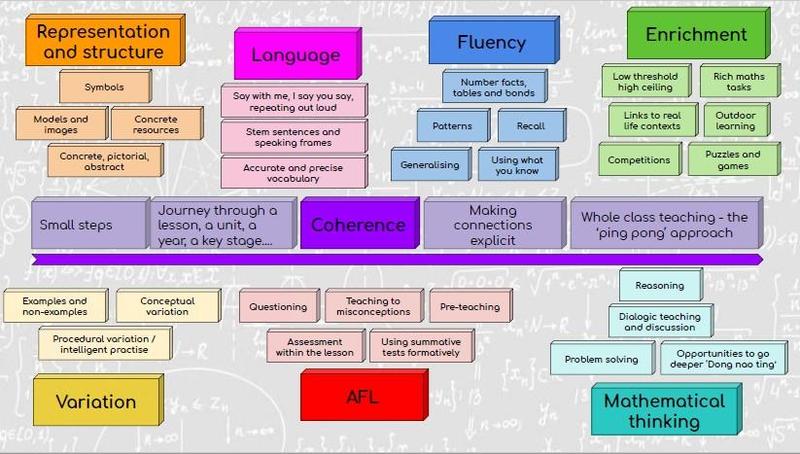
Maths in Early Years
What do we teach and when?
To help structure and plan our lessons, we use White Rose Maths Hub schemes of learning to ensure firm foundations and sequence our learning in small steps. Alongside the schemes of learning, we use a range of rich resources to enhance our lessons and deepen understanding including the NCETM, Nrich, Third Space Learning and Gareth Metcalfe reasoning materials.
Please follow the links below to find specific blocks from each term.
-
White Rose Maths School resource to support planning
To supplement our learning at Weeke, all children have access to learning platforms including Times Table Rock Stars and NumBots. We also offer Doodle Maths for some of our children.
- TimesTable Rockstars Times Table online software
- Numbots Motivational Maths Programme
- Doodle Maths Personalised Maths App
By Year 4, children should be able to recall their multiplication facts up to 12 x 12. To help them develop these skills, children can log on to TTRS using their username and password. Children can practise their tables, improve their Rock Speed and climb the Rockstar ranks!
NumBots is an online game and playing little and often will significantly improve recall and understanding of number bonds and addition and subtraction facts. Children can access NumBots using their username and password.
Children access these both at home and in school.
Concrete Resources we use in school
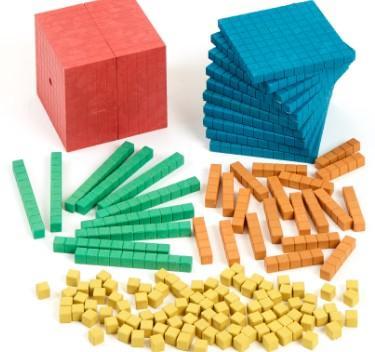
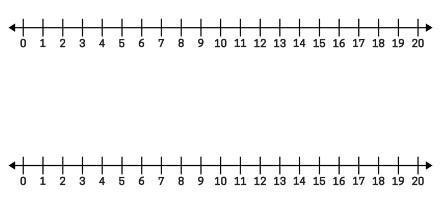
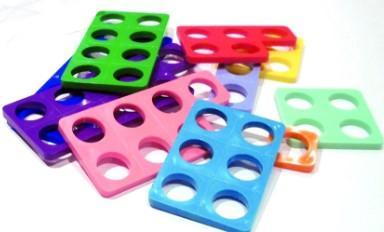

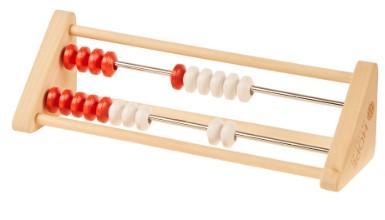

Impact
How do we assess?
Assessment of children’s progress in maths takes place daily using assessment for learning or assessment for teaching, whereby the teacher continually adjusts learning through support and extension. A judgement is made against national expectations in maths each term in years 1 to 6. In key stage 1 this is done through teacher assessment. In key stage two, children are assessed through both teacher assessment and NFER papers, which allow teachers to complete a question-by-question analysis of children’s answers. In year 6, children are assessed using past SAT papers and teachers use gap analysis to target any gaps in knowledge and understanding.
Statutory assessments in maths
In year 4, children complete the national multiplication tables check and in year 6, children complete three maths papers as part of their end of key stage two SATS.
Monitoring of Maths takes place as part of Senior Leader meetings, conversations with teachers, conversations with pupils, pupil progress meetings, learning walks and book checks. Impact is also measured through end of key stage assessments in EYFS, Year 2 and Year 6 and end of year data collection in all other year groups. Children who are not on track are closely monitored and provided with small group interventions to address gaps in learning.
What next for our pupils?
A proportion of our children in Year 6 go on to our local secondary school - Henry Beaufort. We work closely with our secondary schools to support the best possible transition not only for the whole children but to ensure their successful curriculum journey continues. This includes curriculum opportunties where we visit the school or we have specialist teachers come to teach our children key knowledge, skills and understanding.
To gain a further understanding of the next step in our children's learning journey please visit Henry Beauforts curriculum pages. Here you will see how the Primary curriculum at Weeke enables the children to continue to make progress in given subjects.